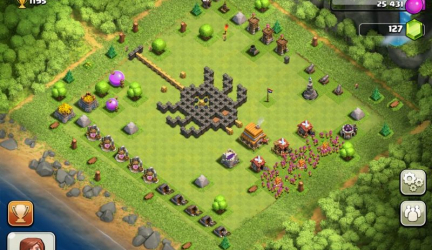Trending Now
- Top 5 Sites like Couch Tuner: Alternatives to Couch Tuner
- Top 10 Best Free Movie Streaming and Downloading Websites
- 50+ Free Premium Minecraft Accounts
- Free | Premium Netflix Accounts & Passwords 2018
- Top 5 IOS Mirror Apps to Wireless Stream Your iPad/iPhone Display
- How to Use AllCast on Windows and Mac?
- How to Use iSmartViewPro on PC and Mac?
- Top 7 Android Games That Works Without Data Connection
- Spotify premium - | Pricing & Plans |
- Spotify Premium For Windows PC (2018) Free
Popular Categories

Top 5 Sites like Couch Tuner: Alternatives to Couch Tuner
The Internet is where; one could find anything, which includes movies, TV shows, documentaries, biographies, etc. With the introduction of the internet, the ...

How to Restart Clash of Clans?
Clash of Clans is a popular game on mobile phones and it is available on Android as well as on iOS. You might also love this game and progressing through the ...

How to Restart Clash of Clans?
Clash of Clans is a popular game on mobile phones and it is available on Android as well as on iOS. You might also love this game and progressing through the ...

50+ Free Premium Minecraft Accounts
Minecraft is a game from a Swedish game developer. This game is all about building a variety of distinct cubes in a 3D world that demands great creativity from ...
Latest Articles

Top 5 Sites like Couch Tuner: Alternatives to Couch Tuner
The Internet is where; one could find anything, which includes movies, TV shows, documentaries, biographies, ...

Top 10 Best Free Movie Streaming and Downloading Websites
Most of the people around the world love watching movies. However, not all of them could watch the movies on ...

50+ Free Premium Minecraft Accounts
Minecraft is a game from a Swedish game developer. This game is all about building a variety of distinct ...

Free | Premium Netflix Accounts & Passwords 2018
Most of the people around the world are busy today with time almost to do nothing; there is another majority ...

Top 5 IOS Mirror Apps to Wireless Stream Your iPad/iPhone Display
Nowadays an iPhone, IPad or IOS platform device has many wonderful benefits. Now I am telling you the 5 best ...

How to Restart Clash of Clans?
Clash of Clans is a popular game on mobile phones and it is available on Android as well as on iOS. You ...

How to Use AllCast on Windows and Mac?
We all love to stream videos from phone to TV and devices like Chromecast cane proves to be really handy. But ...

How to Use iSmartViewPro on PC and Mac?
Security had always been a growing concerned for the people in India and abroad. To deal with this, people ...

How to Use Bluestack with Windows and Mac Operating System?
Have you ever wished that you were able to play the games available on Android on your PC? Do you also wish ...

Top 7 Android Games That Works Without Data Connection
Android has Google Play Store which is loaded with games. You can find thousands of games on Google Play ...

How to Check Who Viewed Your Profile on Facebook?
Social Media is a major part of our lives and almost everyone has an account on Facebook. We have people we ...

How to Play Xbox Games on Windows PC or Laptop?
Are you a fan of High-End games? Are you not sick of waiting for the games to be released for PC? Well, do ...
Show next









